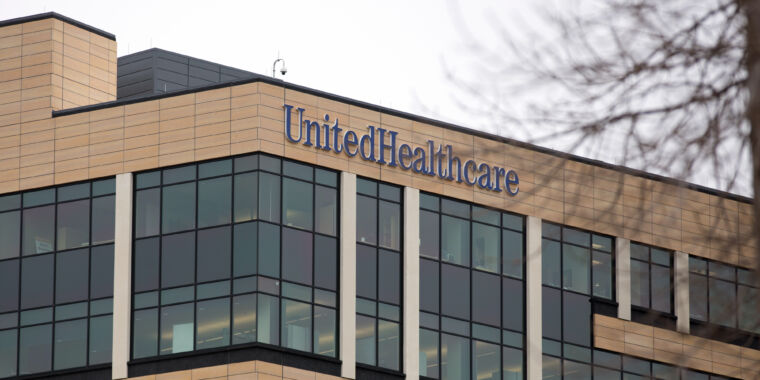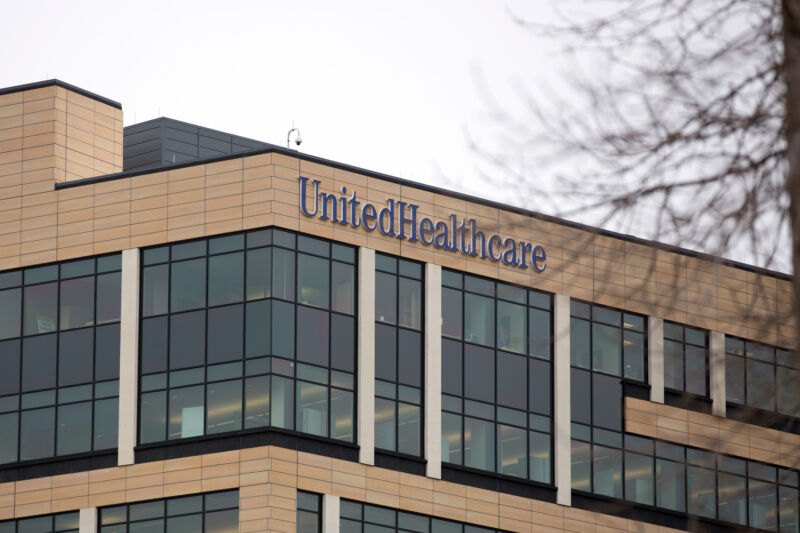Health care giant comes clean about recent hack and paid ransom
HEALTH CARE PROVIDER, HEAL THYSELF —
Ransomware attack on the $371 billion company hamstrung US prescription market.

Getty Images
Change Healthcare, the health care services provider that recently experienced a ransomware attack that hamstrung the US prescription market for two weeks, was hacked through a compromised account that failed to use multifactor authentication, the company CEO told members of Congress.
The February 21 attack by a ransomware group using the names ALPHV or BlackCat took down a nationwide network Change Healthcare administers to allow healthcare providers to manage customer payments and insurance claims. With no easy way for pharmacies to calculate what costs were covered by insurance companies, payment processors, providers, and patients experienced long delays in filling prescriptions for medicines, many of which were lifesaving. Change Healthcare has also reported that hackers behind the attacks obtained personal health information for a “substantial portion” of the US population.
Standard defense not in place
Andrew Witty, CEO of Change Healthcare parent company UnitedHealth Group, said the breach started on February 12 when hackers somehow obtained an account password for a portal allowing remote access to employee desktop devices. The account, Witty admitted, failed to use multifactor authentication (MFA), a standard defense against password compromises that requires additional authentication in the form of a one-time password or physical security key.
“The portal did not have multi-factor authentication,” Witty wrote in comments submitted before his scheduled testimony on Wednesday to the House Energy and Commerce Committee’s Subcommittee on Oversight and Investigations. “Once the threat actor gained access, they moved laterally within the systems in more sophisticated ways and exfiltrated data.” Witty is also scheduled to appear at a separate Wednesday hearing before the Senate Committee on Finance.
Witty didn’t explain why the account, on a portal platform provided by software maker Citrix, wasn’t configured to use MFA. The failure is likely to be a major focus during Wednesday’s hearing.
After burrowing into the Change Healthcare network undetected for nine days, the attackers deployed ransomware that prevented the company from accessing its IT environment. In response, the company severed its connection to its data centers. The company spent the next two weeks rebuilding its entire IT infrastructure “from the ground up.” In the process, it replaced thousands of laptops, rotated credentials, and added new server capacity. By March 7, 99 percent of pre-incident pharmacies were once again able to process claims.
Witty also publicly confirmed that Change Healthcare paid a ransom, a practice that critics say incentivizes ransomware groups who often fail to make good on promises to destroy stolen data. According to communications uncovered by Dmitry Smilyanets, product management director at security firm Recorded Future, Change Healthcare paid $22 million to ALPHV. Principal members of the group then pocketed the funds rather than sharing it with an affiliate group that did the actual hacking, as spelled out in a pre-existing agreement. The affiliate group published some of the stolen data, largely validating a chief criticism of ransomware payments.
“As chief executive officer, the decision to pay a ransom was mine,” Witty wrote. “This was one of the hardest
decisions I’ve ever had to make. And I wouldn’t wish it on anyone.”
Bleeping Computer reported that Change Healthcare may have paid both ALPHV and the affiliate through a group calling itself RansomHub.
Two weeks ago, UnitedHealth Group reported the ransomware attack resulted in a $872 million cost in its first quarter. That amount included $593 million in direct response costs and $279 million in disruptions. Witty’s written testimony added that as of last Friday, his company had advanced more than $6.5 billion in accelerated payments and no-interest, no-fee loans to thousands of providers that were left financially struggling during the prolonged outage. UnitedHealth Care reported $99.8 billion in sales for the quarter. The company had an annual revenue of $371.6 billion in 2023.
Payment processing by Change Healthcare is currently about 86 percent of its pre-incident levels and will increase as the company further restores its systems, Witty said. The number of pharmacies it serves remains a “fraction of a percent” below pre-incident levels.
Health care giant comes clean about recent hack and paid ransom Read More »


